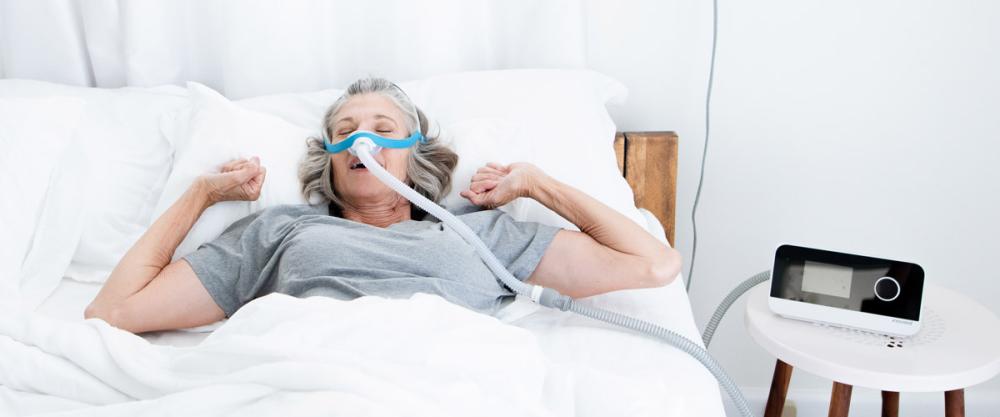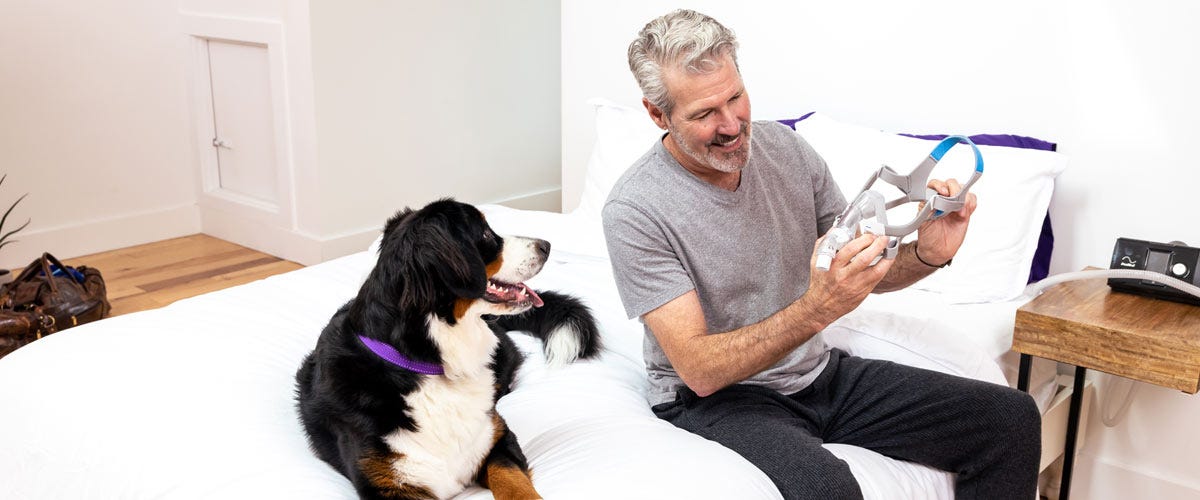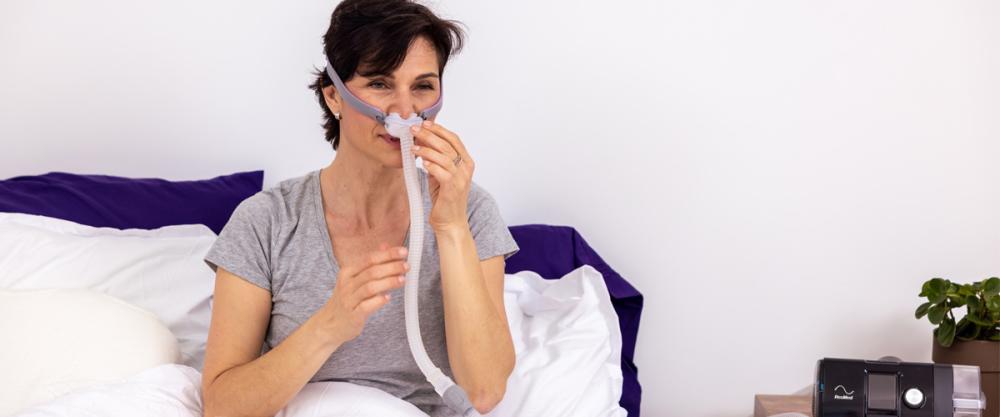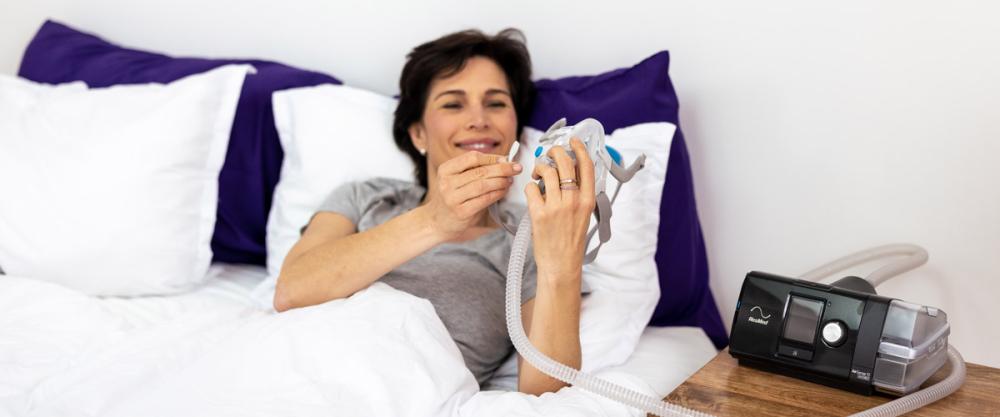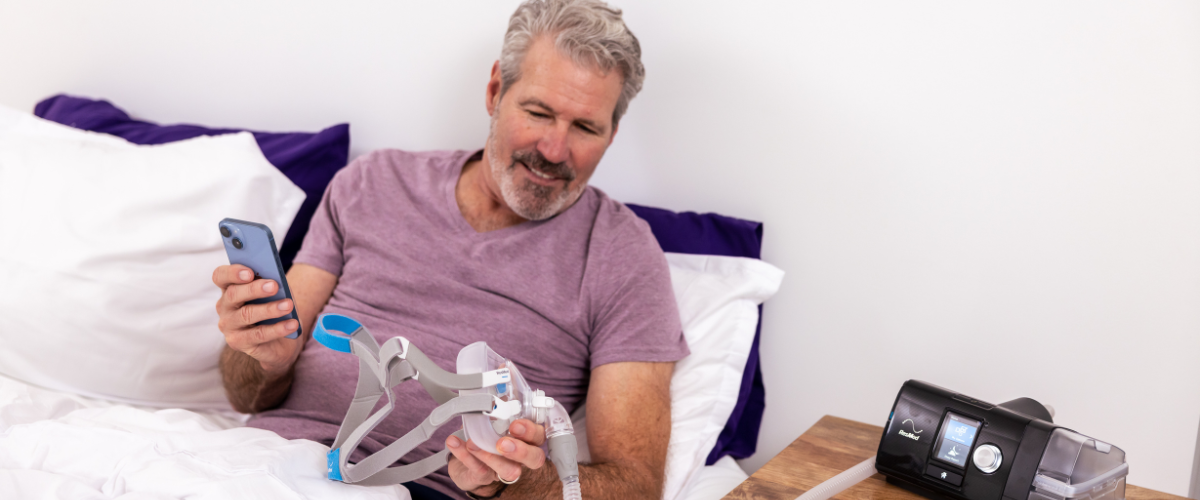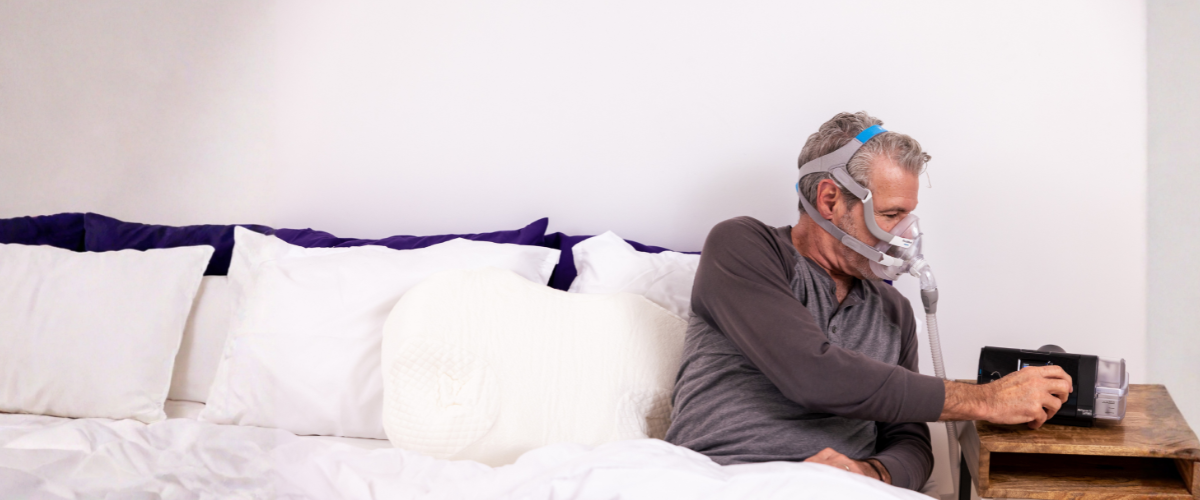New to CPAP therapy? Not only is it the most effective sleep apnea treatment, but it provides your body and mind with the oxygen necessary for optimal health.
12 Important CPAP Benefits
1. Better Heart Health
Sleep apnea and other sleep disorders can increase stress on the heart as levels of oxygen in your blood decrease. As a result of labored breathing when your body tries to wake up and restore airflow, adrenaline– also known as the stress hormone epinephrine– is released into the blood. The level of adrenaline may remain at an elevated rate for long periods of time, contributing to high blood pressure, heart disease,and irregular heartbeats.
Less oxygen may also lead to increased carbon dioxide levels that add pressure to the chest and increase inflammation. These physical changes can cause the walls of the heart to become thicker as it has to work harder to pump less-oxygenated blood, leading to impaired heart function.

2. More Energy
One of the major sleep apnea symptoms includes excessive daytime fatigue. People feel as if they can’t keep their eyes open day after day due to not receiving proper rest. As sleep apnea blocks your airways, your body starts working harder to restore airflow, disrupting your sleep cycles.
As your circadian rhythm, or sleep cycles, become interrupted your body is unable to get enough restorative rest for mental and physical healing, so you wake up feeling tired, achy, and possibly even moody. Some patients immediately feel increased energy levels with their CPAP therapy, while others notice a difference in just a couple of weeks.
3. Lower Risk Of Diabetes
Sleep apnea is linked to the development and worsening of type 2 diabetes because hypoxia, or oxygen deprivation, directly impact glucose metabolism by increasing glucose resistance and inflammation.
Obstructive sleep apnea (OSA) is also linked to decreased glucose sensitivity and glucose effectiveness as adiponectin, or the glucose synthesizing hormone, becomes deregulated.
However, studies show that with the use of CPAP, glucose homeostasis can be improved with reduced levels of glucose resistance and improved metabolism regulation. Recent studies also indicated that those undergoing sleep apnea therapy found it easier to manage type 2 diabetes.
4. Improved Weight Loss
Speaking of your metabolism, if you’re looking to shed a few pounds, then your CPAP could help. Not only does lack of sleep cause demotivation by making you feel too tired to exercise, but it also increases cravings for sugary items for more energy and disrupts your hormones.
Sleep apnea lowers levels of leptin, the hormone responsible for signaling that you feel full, therefore it may cause you to keep eating. It also increases levels of ghrelin, the hormone that signals that you’re hungry.
But once your body becomes better balanced you may experience the energy and willpower to become more active, cook healthier meals, and resist sugary items.

5. Improved Mood
Waking up feeling fatigued day after day isn’t fun. In fact, it can be pretty depressing and you aren’t alone. A recent study showed that 73% of participants with sleep apnea had depression, with worsening symptoms in those with more severe OSA.
Sleep apnea is also linked to irritability, anxiety, and mood swings. After undergoing treatment with CPAP for 3 months only 4% of patients still had depressive symptoms. This shows us that getting enough sleep can help you feel better.
6. Better Skin
It’s true, we all need our beauty sleep! Without enough rest more cortisol, a stress hormone is released and excessive amounts can break down collagen. This is bad news for our skin because collagen is the protein responsible for keeping your skin smooth and firm. Sleep apnea may also reduce collagen production.
But don’t settle for wrinkles and lackluster skin. Use your CPAP to regain your youthful glow and rosy cheeks. Consistent CPAP usage is linked to reduced facial puffiness, redness, and lines. A recent study even showed there was a measurable difference in how youthful, alert, and attractive OSA patients looked before and after CPAP therapy.
7. Improved Intimacy
Better sleep can be the key to better romance as sleep apnea is linked to erectile dysfunction. In a recent study, 69% of participants diagnosed with OSA also had erectile dysfunction. This may be caused by restricted oxygen and lowered levels of testosterone, making it more difficult to achieve a healthy erection. Plus, the stress and fatigue caused by OSA may lead to even more complications in the bedroom. However, there does seem to be a correlation between treating sleep apnea and healthier erections.
8. Fewer Headaches
One of the most frustrating sleep apnea symptoms involves waking up with headaches, but the lack of oxygen in the bloodstream can lead to throbbing pain around the brain. As the body becomes oxygen-deprived, your blood vessels dilate to improve circulation. But without enough oxygen, carbon dioxide is recycled in the bloodstream and can cause irritation. This may cause patients to get caught up in a cycle of migraines and pain, waking every morning or even being woken up during the night due to headaches.
Card9. Stronger Immune System

It’s true what they say, getting enough rest does make your immune system stronger, so when sleep apnea destroys your rest you may become more prone to getting colds and viruses. Typically our bodies release T-cells to fight off illnesses during our sleep by telling the immune system how to respond.
Those with sleep apnea tend to have higher rates of inflammation and lower amounts of T-cells, causing it to become more difficult to fight off foreign invaders. Protect your health by using a CPAP and regularly cleaning the supplies to keep colds and flu at bay.
10. Reduced Risk Of Traffic Accidents
Driving while tired is dangerous. In fact, in police reports, drowsy driving contributes to about 1,550 traffic deaths and 71,000 injuries every year. Those with sleep apnea are also found to be 2.5% more likely to have an accident. Daytime fatigue, less than five hours of sleep, and the use of sleeping pills also caused drivers to be more likely to have an accident. However, when study participants used a CPAP to treat sleep apnea they became 70% less likely to cause a traffic incident.
11. Improved Performance at Work
Fatigue is the number one factor associated with loss of workplace productivity, according to Predictive Safety, makers of the AlertMeter fatigue monitoring tool. In fact, they estimate that daytime fatigue costs US employers over $136 BILLION each year!
If you're suffering from OSA, it won't surprise you to hear that sleep apnea is the most common medical cause of excessive daytime fatigue.
The good news is that CPAP use has been shown to reduce daytime sleepiness and increase wakefulness, even in those with only mild OSA.






